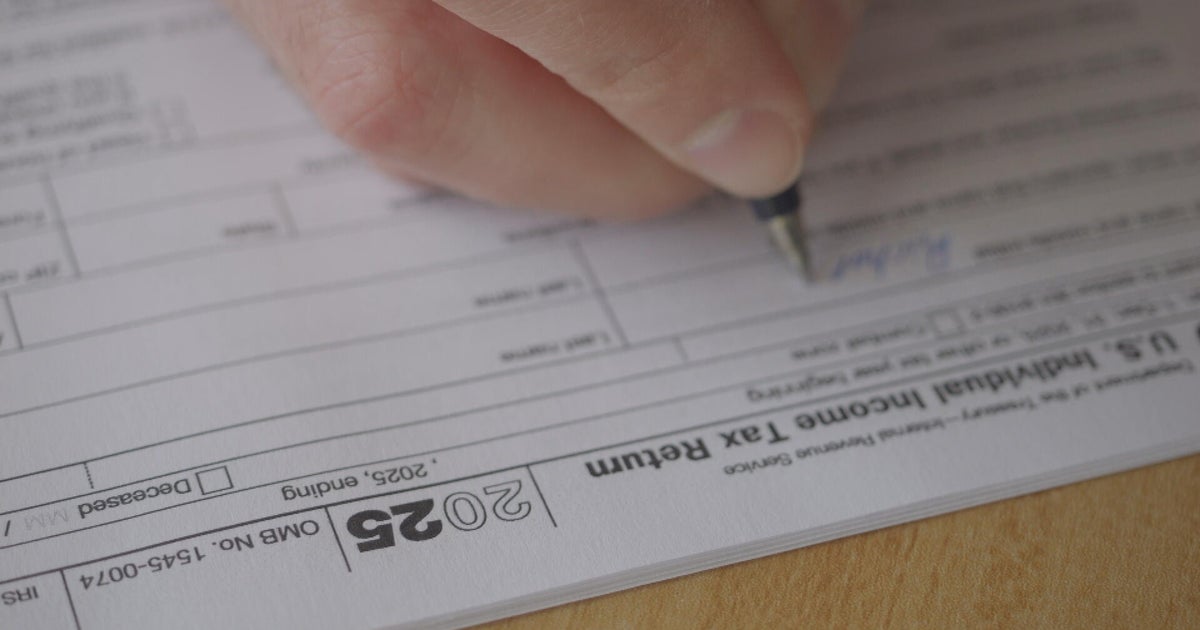IRS is holding millions of tax returns, delaying refunds
The IRS is holding 29 million tax returns for manual processing, delaying tax refunds for many Americans, according to the National Taxpayer Advocate, an independent arm of the tax agency that looks out for consumers' interest. The delays are prompting some taxpayers to fret over social media about spending weeks waiting in limbo for their money.
Typically, the IRS sends most refunds within three weeks of taxpayers filing their return. But this year is complicated by several issues, including a backlog of 2019 paper tax returns that the IRS was unable to process after shuttering its offices during the coronavirus pandemic.
A recent notice from the IRS said that some people may experience a longer than average wait for their payments. That may especially impact tax returns that need a correction due to changes made by the Recovery Rebate Credit — a tax credit adjustment for people who were owed more stimulus money — or to verify income for the Earned Income Tax Credit (EITC) and Additional Child Tax Credit (ACTC), according to the agency.
"This work does not require us to correspond with taxpayers but does require special handling by an IRS employee, so in these instances, it is taking the IRS more than 21 days to issue any related refund," the IRS said in a March 18 post.
The IRS' ability to help taxpayers is still suffering a hit from the pandemic, according to an April 22 report from the Treasury Department's Inspector General for Tax Administration. For instance, the IRS still hadn't reopened all of its Taxpayer Assistance Centers by last fall after shuttering them last spring. And taxpayers who reach out to the IRS via phone must typically wait 18 minutes to get through, versus 11 minutes before the pandemic.
To be sure, the IRS has processed far more tax returns than not, with Taxpayer Advocate Erin M. Collins noting in a blog post last week that the tax agency has gone through more than 91 million individual tax returns filed for the 2020 tax year and issued more than 68 million refunds so far. The IRS has also distributed more than 161 million payments for a third stimulus check over the past several weeks, adding to its workload on top of the current tax season.
But that may not provide much comfort to the millions of households still waiting for their tax refunds.
"The 2021 filing season has been challenging at best," Collins wrote in the blog post.
While the IRS has warned that some people may face delays, it suggests that taxpayers check the status of their refund using the "Where's My Refund?" tool on its site. Notably, however, if a return is still being processed, it doesn't provide details such as when the refund will be issued or if the taxpayer needs to give the IRS additional information.
"6 weeks since IRS accepted my return and still no update. 'It has been received and being processed.' How long does it take to process?" one taxpayer wrote on Twitter. "Others got theirs in 2 weeks, 4 weeks."
Calling the IRS? Good luck
Calling the IRS for information may not be much help, either.
"Many frustrated taxpayers may attempt to call the IRS for a status update on their tax refund," Collins wrote. "But as we know, this year it is difficult to get through to the IRS on its toll-free lines."
Calls to the IRS' Accounts Management lines — the primary phone contact for taxpayers — are up 300% this filing season, but IRS employees are answering only about 7% of all such calls, Collins noted.
The delays in issuing refunds this year are "unavoidable" given the complexity of the tax changes authorized by several stimulus packages over the course of last year and this year, which included three rounds of stimulus checks and new tax credits, Collins said.
For instance, the stimulus package signed into law at the end of December came too late for the IRS to adjust its forms and computer systems for provisions related to the EITC and the ACTC. That means tax returns with this issue must be corrected by hand rather than via computer, the tax advocate said.
Such returns must be corrected manually and are "in 'suspense' until an IRS employee can review it," Collins explained. "Essentially, the return is in a queue waiting to be reviewed and processed, and during this time, it is not evident on IRS systems why the return is being held."
That's frustrating for taxpayers who are banking on their tax refund to pay for essentials or to take care of their debts. Three of four Americans receive a tax refund, with the typical payment amounting to $3,660, according to a new study from LendingTree. For many families, that represents their biggest paycheck of the year.



